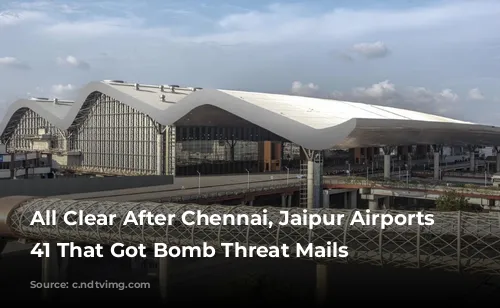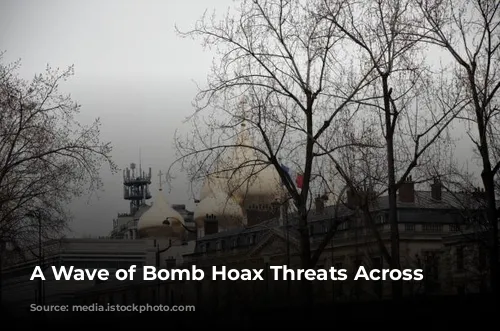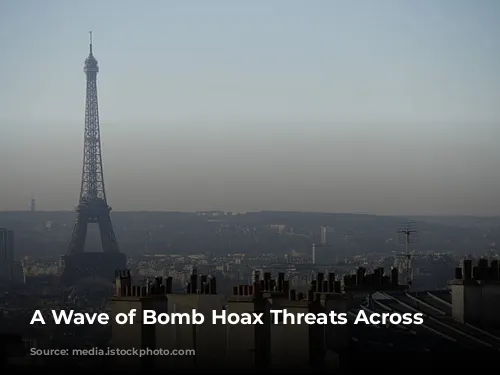A surge of bomb threats has swept across India, targeting airports, schools, and public institutions. These threats, primarily delivered via email, have caused widespread disruption and heightened security measures across the nation. While none of the threats have materialized, their sheer frequency and potential for causing panic are alarming.

Airports on High Alert
On Tuesday, 41 airports across India were placed on high alert after receiving bomb threat emails. The affected airports included major hubs like Chennai, Coimbatore, Patna, Vadodara, and Jaipur. The security forces responded swiftly, conducting thorough searches and implementing safety protocols. Although all threats were eventually deemed hoaxes, the incident highlights the significant impact of these false alarms.
The Central Industrial Security Force (CISF), responsible for airport security, has confirmed that they receive numerous such threats. While most are dismissed as non-serious, the CISF takes each threat seriously, employing rigorous security procedures to ensure passenger safety. This proactive approach, however, underscores the growing concern surrounding these bomb hoaxes.

A Pattern of Deception
The recent wave of bomb threats extends beyond airports, reaching schools, hospitals, and even flights. Just last month, around 150 educational institutions in the national capital region received threatening letters. In the past week alone, there have been reports of bomb threats at a medical facility in Chandigarh, museums in Delhi, a hospital in Thane (Maharashtra), and even a Dubai-bound flight from Delhi airport.
These threats have also targeted high-profile individuals and institutions. In May, a Vistara flight carrying nearly 180 passengers to Srinagar was threatened, as was the residence of Telangana Deputy Chief Minister Mallu Bhatti Vikramarka. The iconic Taj Mahal Palace Hotel in Mumbai and numerous schools in Lucknow (Uttar Pradesh) also received threats. Even the Union Home Ministry itself was targeted with a bomb threat in May.

Unmasking the Culprits
While each threat has thankfully proven to be a hoax, the individuals or groups responsible remain largely unidentified. In a few isolated cases, authorities have apprehended the perpetrators. A 13-year-old boy confessed to sending a threatening email regarding an Air Canada flight, claiming he did it “just for fun.” Similarly, children in Lucknow were found to have accidentally forwarded bomb threat emails during an online chat session.
The sheer volume and international origin of these threats are particularly concerning. In the Delhi school threats, for instance, the emails are believed to have originated from Budapest, Hungary.

The Impact of False Alarms
Each bomb threat, regardless of its validity, triggers a significant security response. Flights are grounded, schools and colleges are closed, and public institutions are locked down, resulting in substantial disruption and inconvenience. The financial and emotional costs of these false alarms are significant, impacting individuals, businesses, and the nation as a whole.
The increasing frequency of bomb threats in India is raising concerns about the potential for genuine danger, especially in light of the possible international connections. While these threats have so far proven to be hoaxes, it is crucial to investigate the perpetrators and ensure that they are held accountable for their actions. This will not only deter future threats but also help restore public confidence and ensure the safety of our nation.









